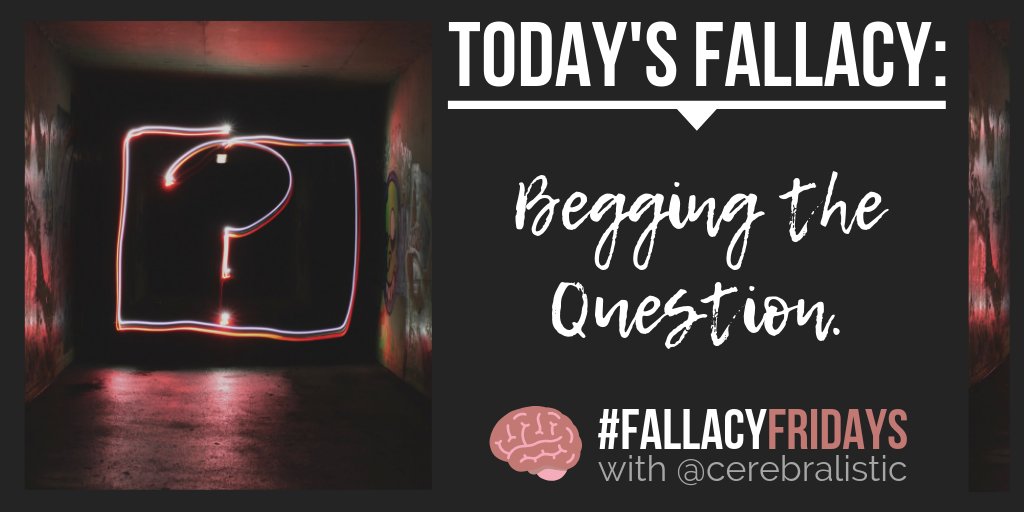Peep today's fallacy below. And don't hesitate to retweet this thread to let your followers in on the fun! 😁

"Well duh. That's clearly fallacious," you say confidently and whatnot.
Person B: Why?
Person A: Because we should do all that's necessary in order to prevent unwanted pregnancies & stop the spread of STDs!




